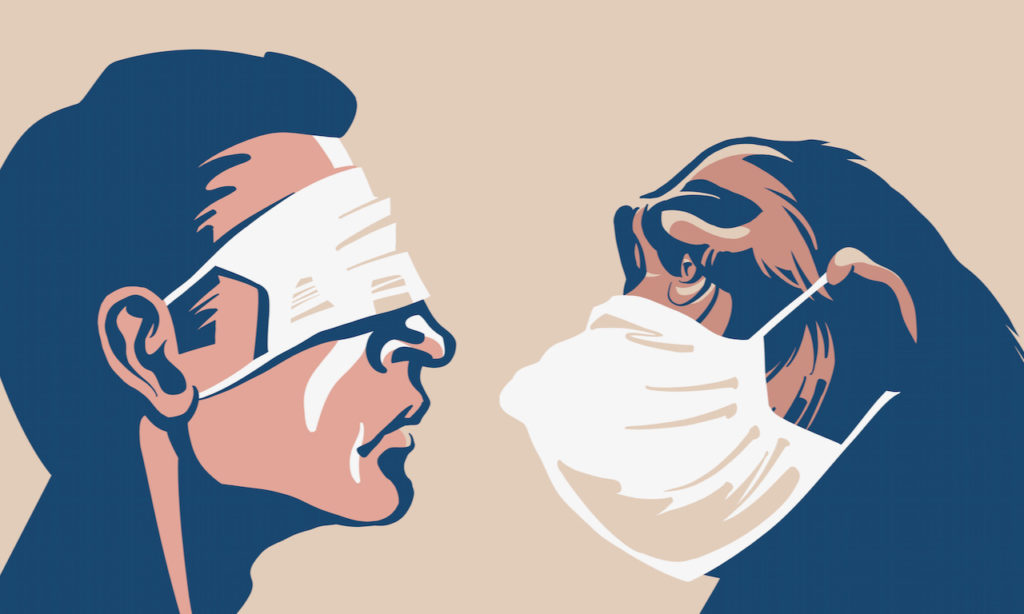
Reluctance of the NHS to return to normal
On the 1st of June 2022, NHS England issued further guidance regarding the use of face masks in clinical settings. In what could be – optimistically – construed as further progress towards the Government’s ‘Living with covid’ goal, this latest official briefing directs hospitals and other care settings to end the requirement for staff, patients and visitors to wear face coverings in most wards and departments. Outside of respiratory-care areas, the wearing of a face covering is generally left to ‘personal preference’ and any requirement for patients to mask up ‘must never compromise their personal care’. This is welcome news.
There are, however, several aspects of this latest directive that indicate that a speedy return to a more humane healthcare system is unlikely and that the less effective, more robotic, version – delivered by faceless professionals hiding behind a veneer of sterility – will persist.
It is clear that that this most recent guidance perpetuates three flawed assumptions:
1. Masks are effective – The real-world, more robust, evidence consistently concludes that face coverings achieve no meaningful reduction in the transmission of respiratory viruses.
2. Covid–19 deserves special treatment – Respiratory viruses have been on this earth longer than humans and there is now no justification for giving the SARS-CoV-2 virus special status; we must return to the pre-2020 mindset where mass masking was not even considered.
3. Masks are benign interventions – There is a plethora of evidence that face coverings are associated with many physical, social and psychological harms, several of which are especially problematic in healthcare settings. As such, any ward or department considering imposing a mask requirement should always include these significant harms as a central part of their local risk assessments.
Also, there are several ambiguous statements in the guidance that seem designed to keep the way clear for future impositions of face coverings. Thus, it is asserted that mask requirements might be needed where there is ‘suspected cluster transmission’ or the emergence of a ‘variant of concern’. Also, visitors ‘may be asked to wear a facemask following a local risk assessment’ thereby rendering any additional restrictions ‘a matter of local discretion’. Regrettably, it seems inevitable that masking in English hospitals will become a postcode lottery, largely dependent upon the whims of each hospital and health-centre manager.
A positive relationship – characterised by warmth, empathy trust and openness – is an essential ingredient of a healing environment. When facial expressions are hidden, the therapeutic alliance is much more difficult to achieve. It is clear that the battle to unmask our doctors, nurses, patients and visitors in our hospitals, GP practices and other healthcare settings is not yet won. As such, HART will continue to oppose the cultural descent into ubiquitous masking in these essential community services.

